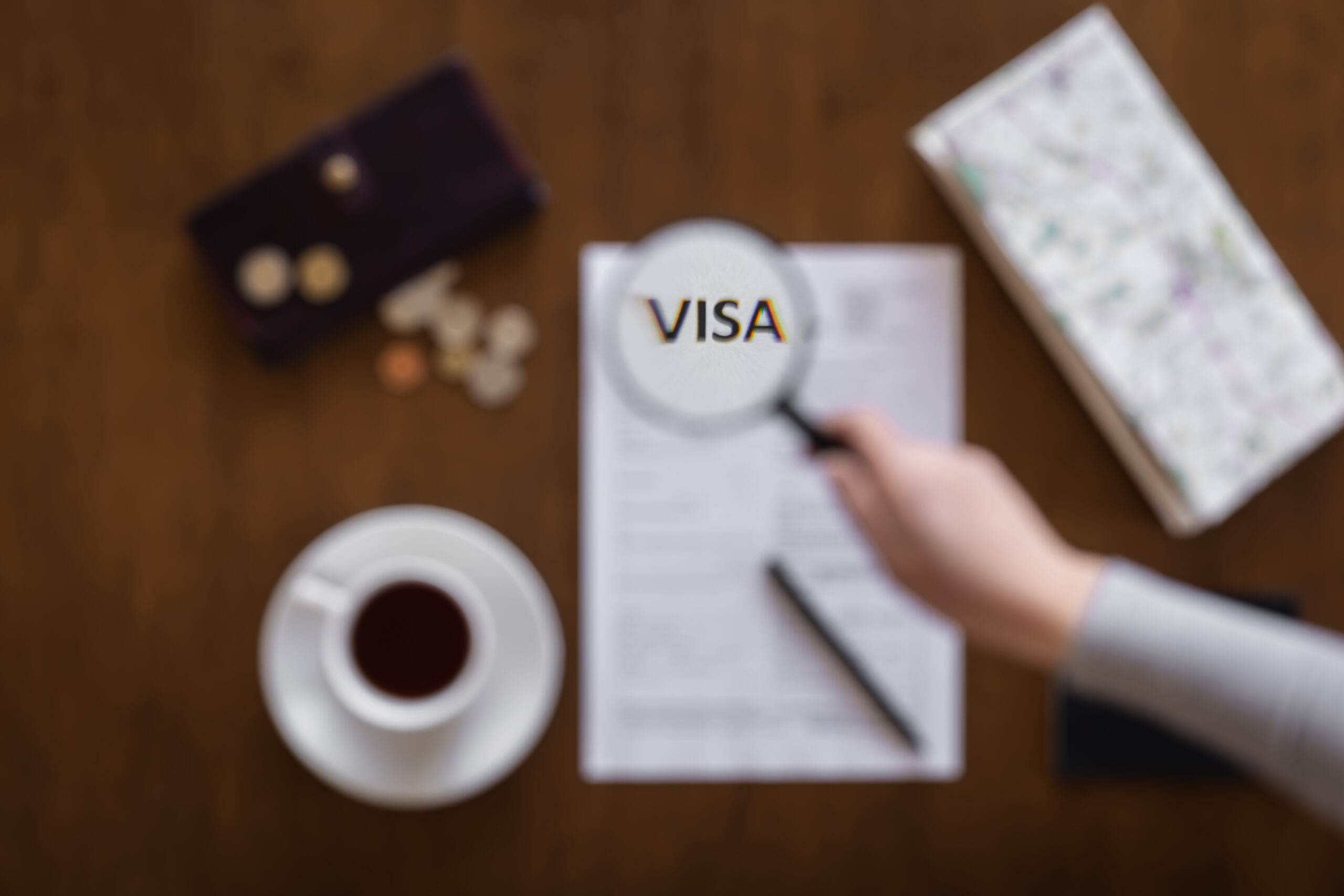In 2024, 86 thousand Indian students received their F1 student visa. That’s a big number, right?
With India being the biggest source of international students in the USA, it is easy to believe that F1 visa rejection rates for Indian students would be minimal.
But that’s not true.
- In 2021, there was an 80% chance of your F1 student visa being approved.
- In 2022, the chances of a USA student visa acceptance came down to 65%.
- In 2023, it further declined to about 63%.
That’s about a 36% F1 student visa rejection rate.
What’s concerning is that the USA student visa rejection rates today are way higher than pre-pandemic years. The increasing rate has sparked frustration and confusion among applicants.
So, what’s changed?
- Tighter scrutiny post-COVID
- Geopolitical tensions and changing immigration policies
- Higher number of fraudulent or poorly-prepared applications
- Candidates failing to demonstrate genuine student intent
While 36% may seem like a statistic. But imagine the state of those bright, ambitious students who were told no.
A visa rejection feels like the collapse of months, if not years, of hard work, dreams, and planning.
That’s why it’s crucial to understand why F1 visa applications get rejected and how to avoid these pitfalls. In this blog, we break down the F1 visa rejection reasons and solutions for you.
Read on.
Common reasons for F1 student visa rejections
If you have received a letter like the one shown below, you know the pain and level of frustration.
But here’s a silver lining to this situation: You can reapply for your F1 visa. For that, all you need to do is understand the reasons for F1 student visa rejection and remedy that situation.
Below, we have mentioned the most common reasons for F1 visa rejections:
Finance-Related Reasons
Insufficient proof of funding
F1 visa rejection due to financial issues often means your proof of funds was not proper. You must show that you can cover at least one year’s tuition and living expenses. If your bank statement shows ₹20 lakh but has no explanation for a recent deposit or lacks transaction history, the visa officer may find your funds suspicious or unstable.
Unverified or weak sponsor support
If you’re being sponsored, clear documentation is key. Imagine a vague affidavit stating “uncle will pay” without ITRs or salary slips. This makes it seem like the support isn’t real or sustainable. This will often lead to rejection.
Visa Application–Related Mistakes
Incomplete or contradictory DS-160 form
Your visa form must match your interview responses. For instance, if you mention wanting to return to India in your DS-160. But later in the interview, you tell the officer about your dream of working in the USA. This creates a mismatch that questions your intent.
Also Read: What is DS-160 form?
Mismatch between academics and course choice
Imagine a student with a BSc in Biology applying for an MS in Data Analytics. Ever without any relevant coursework or job experience. Anyone would feel that there is a mismatch here, right? So if your application makes it appear that you are choosing a course that doesn’t align with your background, you may face rejection. That said, it does not mean that you cannot go for a course that isn’t directly related to your previous courses. All you need to do is show and explain the reason for the path change.
Low-ranked or dubious university selection
Choosing a university known for low admission standards can raise red flags. If your academic record suggests you could attend better institutions, but you’ve chosen one with low credibility, the officer may doubt your academic motives.
Interview-Related Mistakes
Poor communication skills during interview
Your confidence and clarity during the interview matter. If you stumble when asked “Why this university?” and respond, “My counselor told me to apply,” it suggests lack of genuine interest. This makes your intent questionable, which is a major ground for F1 student visa rejection.
Over-reliance on education consultants
Using robotic, pre-scripted answers is also among the most common reasons for F1 visa denial. For example, saying “XYZ University has excellent faculty and labs” without specifics shows you haven’t done your own research. This leads the officer to question the authenticity of your application.
Also Read: F1 Visa Interview Questions Guide
Credibility and Intent Issues
Unclear or weak career plans
If you don’t have a convincing plan after graduation, the officer may assume you’re not serious. Saying “I’ll just get a job in India” without naming potential roles, companies, or how the course helps your goals weakens your case.
Inability to prove non-immigrant intent (214(b))
By law, you must prove you’ll return to India after your studies. Mentioning that your brother lives in the USA or that you’d like to stay back and work can lead to rejection under Section 214(b).
Suspicious documentation or gaps
F1 visa rejection due to incomplete documentation is one of the most common situations. Any red flags in your documents can lead to outright rejection. These red flags can be:
- Large last-minute bank deposits
- Fake loan approvals
- Missing semester transcripts
It can even lead to permanent visa bans in extreme cases.
How to avoid F1 visa rejections
The golden rule to minimize the chances of F1 visa refusal is to avoid the mistakes listed above.
Here are some more things to keep in mind to avoid F1 visa refusal:
- Be confident, polite, and honest during your visa interview
- Practice your answers to key questions like “Why this course?”, “Why this university?”, “How will you fund your education?”, “What after graduation?”
- Ensure your DS-160 form is complete and accurate
- Choose your university and program carefully to match your academic background and career path
- Show credible, documented financial capacity with sanctioned loans or reliable sponsor support
- Avoid consulting agencies with a poor reputation or cookie-cutter SOPs
- Maintain consistency across all documents and interview answers
- Prepare to explain your ties to India: job prospects, family, property, future plans
- Don’t submit fake documents or exaggerate your background
- Have a well-written Statement of Purpose (SOP) even if not required. (It helps clarify your intent to yourself too and gives you confidence to answer the interview questions)
Appealing an F1 visa rejection: Is it possible?
Technically, you cannot appeal a USA F1 student visa rejection under Section 214(b). The decision is final and non-reviewable.
But you can reapply after having remedied the reasons for rejection. Here’s how:
Steps to Reapply After F1 Visa Rejection:
Step 1: Review your interview experience and the visa officer’s comments.
Step 2: Update your documents, correct inconsistencies, prepare stronger financial or career reasoning.
Step 3: Wait a reasonable time before reapplying. Reapplying within a few days without addressing the root cause will likely lead to another rejection.
Step 4: Fill a new DS-160, pay the SEVIS fee (if required again), and book a new interview slot.
Step 5: Be ready to confidently explain what has changed since your last application.
Note:
If your rejection was due to fraud or misrepresentation, reapplying may not help and could lead to a long-term visa ban.
Also Read: F1 Visa for Indian Students – Complete Guide
Take the 1st step towards F1 student visa approval
With that, it is a wrap on our guide on the most common F1 visa rejection reasons and how to avoid them. Armed with that information, you’re already ahead of most applicants.
But if you want to further boost your chances of F1 visa approval, here’s what else you can do:
- Use a smart university selection platform to find the university that best matches your background
- Get education loans from credible national and international lenders.
- Get expert guidance for SOP, USA health insurance, and interview prep
At GradRight, our experts are always ready to help you achieve your American education dream. Important: GradRight is 100% free for students. Plus, our university selection platform works on 60,000+ data points, removing any human bias.
FAQs
1. What are the main reasons for F1 visa rejections?
The key reasons why F1 student visa is rejected:
- Not being able to prove intent to return home (214(b))
- Having insufficient financial proof
- Inconsistent application or interview answers
- Unclear academic goals
- Doubts about the credibility of your chosen university
Most of the reasons why an F1 student visa is rejected are avoidable with careful planning and preparation.
2. How can I avoid an F1 visa rejection?
To avoid a F1 student visa rejection, you should:
- Be clear, consistent, and truthful in your documents and interview
- Choose a suitable course and university
- Show proof of strong funding
- Explain your ties to India
- Ensure your DS-160 is complete and accurate
Also, avoid the common F1 student visa interview mistakes like being under- or overconfident.
3. Can I reapply if my F1 visa is rejected?
Yes, you can reapply after a rejection. However, you must fix the issues that caused your rejection. It’s important to wait until you can present a stronger application with improved documentation or clearer reasoning.
4. What should I do if my F1 visa application is denied?
If you face F1 student visa rejection, start by analyzing the reason for rejection. Then strengthen your weak areas, gather stronger documents, and prepare better for the interview.
You’ll need to fill out a new DS-160 and schedule another interview.
5. How can I prove strong ties to my home country for an F1 visa?
To show strong ties to India for an F1 visa, you can:
- Show evidence of family, property, or job commitments in India.
- Talk about your post-graduation career goals in India, family business involvement, or return plans.
- The officer needs to be convinced that you intend to come back after your studies.


















